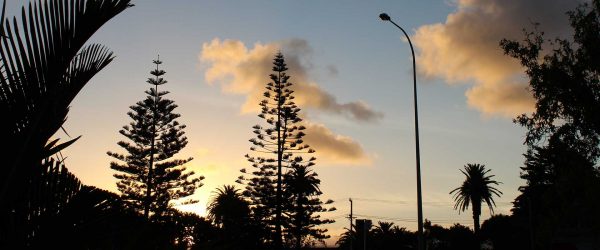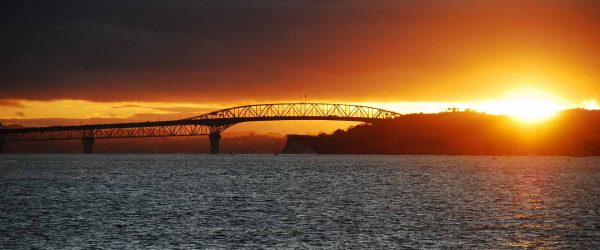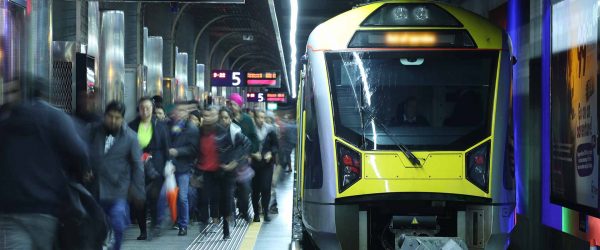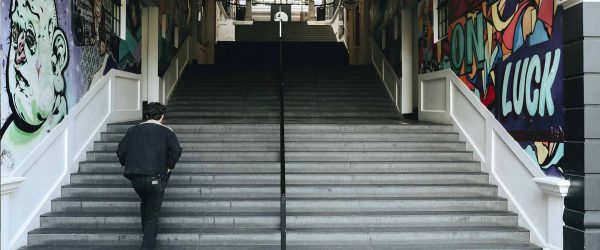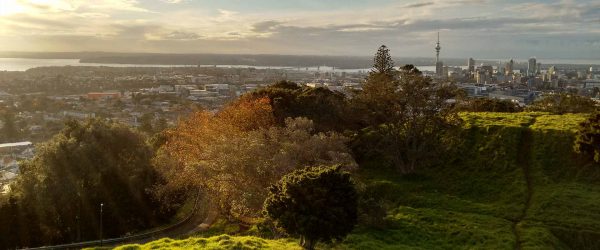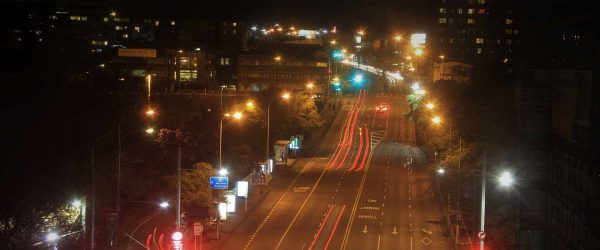Inclusive Urban Communities
Ngā Hapori Taone Whakauru
Vision
Our diverse urban communities are resilient to disasters, being supported by policies and practices that are inclusive and relevant.
Project description
The Inclusive Urban Resilience project focuses on how to most effectively enable our diverse urban dwellers to become advocates for resilience.
Building resilience through fostering inclusion of diverse urban dwellers has become a central focus of policies and practices geared towards reducing the risk of disaster. The guiding principles of this project are based around the recommendations of the Sendai Framework for Disaster Risk Reduction. This agenda requires us to:
- Recognise the unique and diverse vulnerabilities and capacities of all urban communities across the country;
- Build rapport and trust so that all communities’ voices are recognised and included in policy and practice;
- Address the unequal power relations that underpin everyday marginalisation and neglect of those urban communities most vulnerable to natural hazards;
Working with a wider range of partners and stakeholders including NGOs and international organisations such as the Red Cross, our objectives include:
- Mapping characteristics of urban communities’ vulnerabilities and capacities in facing natural hazards
- Exploring vulnerabilities and capacities at the intersection of diverse urban communities, i.e. across gender and age, physical ability and poverty
- Identifying obstacles and pathways towards the inclusion of diverse urban communities in building resilience to natural hazards
- Developing a conceptual and policy framework for fostering the inclusion of diverse urban communities in building resilience to natural hazards
Our goal is that new knowledge informs scholarship on disasters as well as policy and actions geared to reduce disaster risk.
Wawata
He manawaroa ō mātou hapori noho taone kanorau i ngā aituā, ā, e tautokona ana e ngā kaupapahere me ngā tikanga kauawhi, whai tikanga hoki.
Whakaahuatanga papatono
E arotahi ana te kaupapa o te Manawaroa Taone Kauawhi ki te ara whai hua rawa hei whakamana i te hunga noho taone kanorau ki te noho hei kaihāpai i te manawaroa
Kua aro pū ngā kaupapahere me ngā tikanga e hāngai ana ki te whakaheke i te tūraru o tētahi aituā ki te whakawhanaketanga o te manawaroa mā te whakatītina i te kauawhitanga o te hunga noho taone kanorau. E hāngai ana ngā mātāpono o tēnei kaupapa ki ngā tūtohinga o te Sendai Framework for Disaster Risk Reduction. E tohu ana tēnei kaupapa kia pēnei mātou:
- Whakamana i ngā whakaraeraetanga motuhake, kanorau hoki, me ngā āheinga o ngā hapori noho taone puta noa i te motu;
- Whakawhanake i te whanaungatanga me te whakawhirinakitanga kia rangona ai ngā reo o ngā hapori katoa, kia uru ai hoki ki ngā kaupapahere me ngā tikanga;
- Whai urupare ki ngā āhuatanga o te mana rerekē i roto i ngā whakaparahakotanga me te whakahapatanga o ia rā o ngā hapori e tino whakaraerae ana ki ngā mōrearea o te taiao;
E mahi tahi ana mātou ki ētahi rangapū whānui ake, hunga whai pānga hoki, tae atu ki ngā NGO me ngā tōpūtanga o te ao whānui pērā i te Ripeka Whero, ā, ko ō mātou whāinga ko te:
- Whakamahere i ngā āhuatanga o ngā whakaraeraetanga me ngā āheinga o ngā hapori noho taone i ngā mōrearea o te taiao
- Tūhura i ngā whakaraeraetanga me ngā āheinga i te whakawhitinga o ngā hapori noho taone kanorau, arā, e whakawhiti ana i te ira me te pakeke, ngā āheinga ā-tinana me te rawakore.
- Tautohu i ngā raruraru me ngā ara e whai ana i te kauawhitanga o ngā hapori noho taone kanorau ki te whakawhanake i te manawaroa i ngā mōrearea o te taiao
- Whakawhanake i tētahi pou tarāwaho ā-ariā, ā-kaupapahere hoki hei whakatītina i te kauawhitanga o ngā hapori noho taone kanorau ki te whakawhanake i te manawaroa i ngā mōrearea o te taiao
Ko tō mātou whāinga kia whakamōhio te mātauranga hou i te mātauranga tiketike mō ngā aituā, ngā kaupapahere me ngā mahi e whakaheke nei i te tūraru o ngā aituā.
Resource Outputs from this project
Measuring vulnerability: By Whom and for Whose Benefit? The Significance of Participation
This chapter provides an overview of the two main approaches to measuring vulnerability in the study of disasters, with a focus on so-called participatory approaches that have gradually emerged to fill the gaps left by these dominant approaches.
How can practitioners support citizen volunteers in disaster risk reduction? Insight from ‘Good and Ready’ in Aotearoa New Zealand
This research examined the outcomes of the Red Cross 'Good and Ready' disaster resilience initiative, and investigated volunteers’ experiences.
Differences in perceived sources of uncertainty in natural hazards science advice: lessons for cross-disciplinary communication
E.E.H. Doyle, J. Thompson, S.R. Hill, M. Williams, D. Paton, S.E. Harrison, A. Bostrom, J.S. Becker 2024 Differences in perceived sources of uncertainty in natural…
Homelessness and COVID-19 in New Zealand: Challenges, emergency responses, and implications for disaster risk reduction
This research analyses homeless people's experiences of the COVID-19 response in New Zealand, and examines policies and actions developed by government agencies and local organisations.
Inclusive Disaster Research in Aotearoa New Zealand. Sourcebook and Reference Guide.
This sourcebook provides a reference list of existing research dealing with whole-of-society, participatory and inclusive approaches to disaster risk reduction in Aotearoa New Zealand.
Disaster Risk
A comprehensive and unique perspective on disaster risk associated with natural hazards.
Transnational migration and disaster risk reduction: Insights from Chinese migrants living in Auckland, New Zealand
Migrants can be disproportionately impacted by disasters due to their increased vulnerability.
Measuring resilience: by whom and for whom? A case study of people-centred resilience indicators in New Zealand.
The development of people-centred indicators of resilience in New Zealand highlights people are capable at defining and assessing their own resilience.
Researching the capabilities of people with disabilities: would a critical realist methodology help?
Insights into the use of disaster video games in museums.
The role of “not for profits” (NFPs) in disaster preparedness in Aotearoa New Zealand
Understand NFP perspectives and practices in regard to disaster preparedness activities to support people who are the least prepared for disasters.
Urbanisation and disaster risk: the resilience of the Nigerian community in Auckland to natural hazards
Determining resilience from the social, economic, communication, disaster competency, and physical resources of the Nigerian community in Auckland.
The role of faith-based institutions in urban disaster risk reduction for immigrant communities
The role of Buddhist temples in disaster preparedness, response and recovery and the hindrances to optimising this role.
A New Guiding Framework for Engaging Diverse Populations in Disaster Risk Reduction: Reach, Relevance, Receptiveness, and Relationships
Pacific Island communities’ perspectives and anticipated responses to natural hazards in Auckland, Aotearoa New Zealand.
Participatory mapping 2.0: new ways for children’s participation in disaster risk reduction.
Participatory mapping provides a way for children to participate in decision-making processes about disaster risk reduction with adults.
People’s participation in disaster risk reduction: recentering power
Top-down approaches to participation often privilege some and marginalise others, often because of a failure to adequately acknowledge, analyze, and accommodate power and power relations.
Academic publishing in disaster risk reduction: past, present, and future
Opportunities, challenges, expectations, and commitments for journal editors both within disaster risk reduction, and academia more broadly.
Get prepared: Discourse for the privileged?
Blake D, Marlowe J, Johnston D. 2017. Get prepared: discourse for the privileged? International Journal of Disaster Risk Reduction. 25:283-288. doi:10.1016/j.ijdrr.2017.09.012.
Exploring the use of Quake Safe House to foster disaster and disaster risk reduction awareness in museum visitors.
Gampell AV, Gaillard JC, Parsons M, Le Dé L. 2020. Exploring the use of the Quake Safe House video game to foster disaster and disaster…
‘Serious’ disaster video games: an innovative approach to teaching and learning about disasters and DRR.
Exploring the ability of ‘serious’ disaster video games to foster student participation in learning.
Fostering student participation in disaster risk reduction through disaster video games
A process inclusive of all stakeholders should appropriately assess needs, which can lead to genuine and meaningful learning outcomes.
Queering “Gender and Disaster” for Inclusive Disaster Risk Reduction
This paper proposes disaster scholars adopt a more inclusive and complex understand of gender, to contribute to more effective disaster risk reduction policies and practices.
